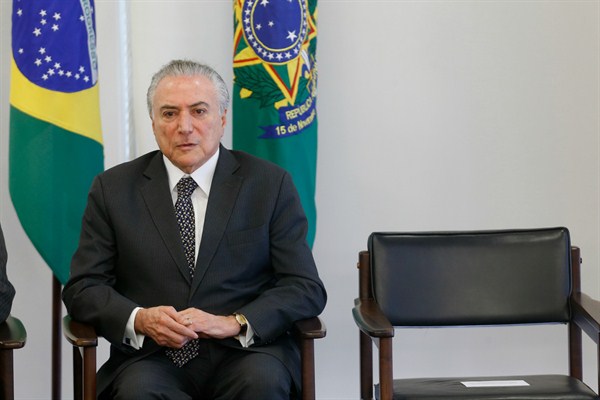Earlier this month, Brazil’s president, Michel Temer, gathered his Cabinet to the Planalto presidential palace in Brasilia to mark the end of his first year in office. He toasted progress on his reform agenda, while stumping for still more austerity. Federal spending on social programs had been capped for 20 years, and the airline and oil industries opened to more foreign investment, but the real prize awaited. Congress was advancing toward the approval of the top item on Temer’s agenda, the most ambitious pension reform since Brazil’s dictatorship ended in 1985.
Given the positive impact that a cut to benefits and higher retirement ages would have on the government’s long-term budget, capital markets were exuberant about the prospect of the reform passing. In 2016, Brazil’s stock market had outperformed all others in dollar terms, a trend that continued into this year. But despite enjoying the favor of investors, Temer might not have called his time in office “a year of success”—or, in its more imperious Portuguese, “um ano de conquistas”—if he had known what was coming next.
On May 17, Joesley Batista, chairman of Brazil’s top meat producer JBS, submitted to the Supreme Federal Tribunal, the country’s highest court, a recording on which Temer can be heard approving the payment of hush money to the former speaker of the lower house of Congress, Eduardo Cunha, who is currently imprisoned on corruption charges. On another recording, Sen. Aecio Neves, a runner-up in 2014’s presidential election, can be heard soliciting a bribe for 2 million reais, or about $610,000. The court took the recordings seriously, opening an investigation into Temer, while ordering Neves removed from office and two of his relatives arrested.

